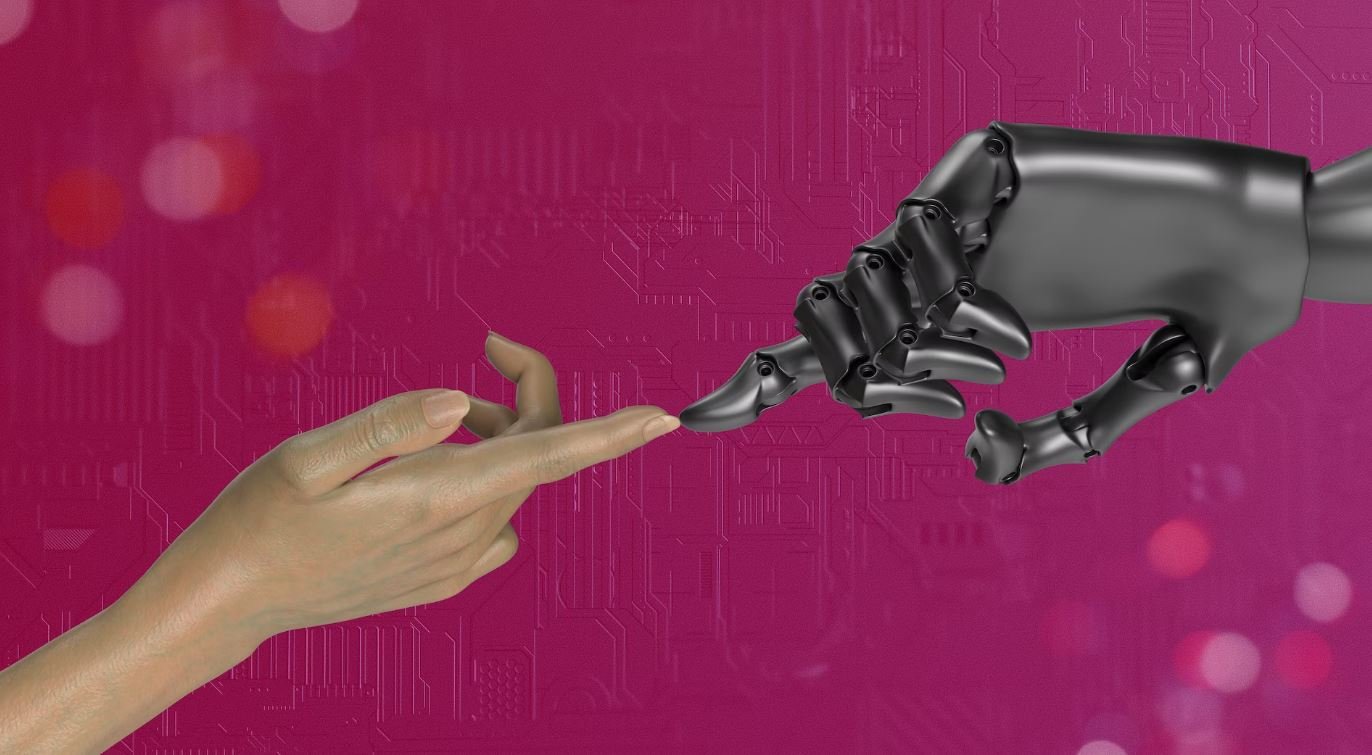AI for Everyone
Artificial Intelligence (AI) is no longer a concept confined to science fiction. It is now a reality that has integrated into our daily lives like never before. From virtual personal assistants to autonomous vehicles, AI technology continues to advance and impact various industries. In this article, we will explore the basics of AI and its implications for everyone.
Key Takeaways:
- Artificial Intelligence (AI) is increasingly prevalent in today’s world.
- AI impacts various industries and everyday life.
- Understanding the basics of AI is essential for everyone.
What is AI?
AI refers to the ability of machines to simulate human intelligence and perform tasks that typically require human cognition. It involves complex algorithms, data analysis, and pattern recognition to mimic cognitive functions such as learning, problem-solving, and decision-making. *AI has the potential to revolutionize numerous fields and improve efficiency in various processes.*
Types of AI
AI can be categorized into three main types:
- Narrow AI: This type of AI is designed to perform specific tasks and has a limited scope of capabilities.
- General AI: Also known as Strong AI, this type of AI possesses the ability to understand and perform any intellectual task that a human being can do.
- Superintelligent AI: This theoretical form of AI surpasses human intelligence and is capable of solving problems beyond human comprehension.
Applications of AI
AI is being utilized in various domains, including:
- Healthcare: AI algorithms assist in diagnosing diseases, analyzing medical images, and providing personalized treatment plans.
- Finance: AI improves fraud detection, automates financial transactions, and enhances investment strategies.
- Transportation: Autonomous vehicles and smart traffic management systems rely on AI to enhance safety and efficiency.
- Customer Service: Chatbots and virtual assistants powered by AI provide quick and accurate customer support.
The Impact of AI on Employment
While AI offers numerous benefits, its integration also raises concerns about job displacement and automation. However, AI can create new job opportunities and augment human capabilities in the following ways:
- Enhancing productivity and efficiency in repetitive tasks, allowing individuals to focus on more complex and creative aspects of work.
- Creating new job roles related to AI development, maintenance, and ethical considerations.
- Improving decision-making processes by providing data-driven insights and predictions.
Table 1: AI Job Growth Projections
| Year | Estimated AI Jobs |
|---|---|
| 2022 | 58.8 million |
| 2025 | 133.0 million |
| 2030 | 231.5 million |
Challenges and Ethical Considerations
AI development also brings along certain challenges and ethical concerns, including:
- Privacy and security risks associated with the collection and usage of personal data.
- Algorithmic biases and fairness issues that can perpetuate discrimination.
- Accountability for AI decisions and the potential lack of transparency in complex AI systems.
Table 2: AI Impact on Industries
| Industry | AI Applications |
|---|---|
| Healthcare | Medical image analysis, drug discovery, robotic surgery |
| Finance | Fraud detection, algorithmic trading, customer service |
| Transportation | Autonomous vehicles, traffic optimization, predictive maintenance |
The Future of AI
The potential of AI is vast, and its continuous development opens up new opportunities and challenges. As AI technology advances, it is crucial to prioritize ethical considerations, update regulatory frameworks, and foster public understanding and involvement in AI-related decisions. *Embracing AI responsibly can lead to sustainable progress and innovation across industries and benefit society as a whole.*
Table 3: AI Funding by Country (2021)
| Country | AI Funding (in billions USD) |
|---|---|
| United States | 22.6 |
| China | 10.9 |
| United Kingdom | 1.7 |

Common Misconceptions
Misconception: AI will take over all jobs
One common misconception about AI is that it will completely replace human workers in all fields. This is not true because:
- AI is designed to augment human capabilities, not replace them.
- Many jobs require human expertise and decision-making that AI cannot replicate.
- AI can perform repetitive, mundane tasks, freeing up humans to focus on more complex and creative work.
Misconception: AI is infallible and unbiased
Another common misconception is that AI systems are inherently objective and free from biases. However, this is not the case because:
- AI systems are programmed and trained by humans, who may have their own biases.
- AI models learn from data, and if the data is biased, the AI will reflect those biases.
- It is essential to regularly monitor and audit AI algorithms to identify and mitigate biases.
Misconception: AI can replace human creativity and intuition
Some people believe that AI can fully replicate human creativity and intuition. However, this misconception arises from a lack of understanding that:
- AI is limited to what it has been trained on and may struggle with generating original ideas or creative problem-solving.
- Intuition is a complex cognitive process that is hard to replicate in machine learning algorithms.
- Humans possess emotional intelligence and contextual understanding that AI currently lacks.
Misconception: AI will lead to superintelligence and robot overlords
Another misconception surrounding AI is the fear that it will lead to superintelligent machines dominating humanity. However, this is not supported by the current state of AI technology because:
- AI is developed with specific purposes and limited to narrow domains of expertise.
- There is no evidence to suggest that AI systems have the potential for general intelligence or consciousness.
- AI development is focused on solving specific problems and improving human lives, rather than replacing or overpowering humans.
Misconception: AI is only relevant for tech-savvy industries
Many people believe that AI is only applicable to technology-driven sectors. However, AI has various applications beyond traditional tech fields:
- AI is being utilized in healthcare to improve diagnostics and develop personalized treatment plans.
- In agriculture, AI is employed for crop monitoring, optimization of resources, and pest detection.
- AI is also revolutionizing transportation with autonomous vehicles and optimizing logistics.

The Rise of Artificial Intelligence
Artificial Intelligence (AI) has been transforming industries and revolutionizing the way we live and work. From autonomous vehicles to smart assistants, AI is paving the way for exciting advancements in technology. The following tables provide a glimpse into the incredible impact AI is making across various sectors.
Enhancing Healthcare with AI
Artificial Intelligence has the potential to revolutionize healthcare by assisting in diagnosis, treatment, and drug discovery. This table highlights the benefits of AI in healthcare.
| Application | Benefits |
|——————-|——————————————————————————————————————————————-|
| Disease Diagnosis | Improved accuracy of diagnosis, leading to early detection of diseases. |
| Medical Imaging | Enhanced interpretation of medical images, aiding in diagnosing complex cases. |
| Drug Discovery | Accelerated discovery of new drugs and personalized treatment options. |
| Virtual Assistants| Patient monitoring, medication reminders, and personalized care assistance. |
Driving Transformation in Education
Artificial Intelligence is reshaping the education sector by enabling personalized learning experiences and enhancing administrative tasks. The following table demonstrates the applications of AI in education.
| Application | Benefits |
|——————|———————————————————————————————————————————————-|
| Adaptive Learning| Personalized learning paths for students based on their strengths and weaknesses. |
| Intelligent Tutors| Customized tutoring experiences, providing targeted assistance to students. |
| Grading Automation| Automated grading of assessments, saving time for teachers and providing immediate feedback to students. |
| Administrative Support| Streamlined administrative tasks such as scheduling, enrollment, and record keeping. |
Revolutionizing Financial Services
Artificial Intelligence is bringing significant advancements to the financial industry, improving customer experiences and risk management. Explore the AI applications in finance through the table below.
| Application | Benefits |
|———————|——————————————————————————————————————————-|
| Fraud Detection | Enhanced fraud detection capabilities, identifying and preventing fraudulent activities in real-time. |
| Robo-Advisors | Personalized investment recommendations and portfolio management, providing cost-effective financial advice. |
| Algorithmic Trading | Automated trading strategies, leveraging AI’s ability to analyze vast amounts of data and make quick investment decisions. |
| Customer Service | AI-powered chatbots provide 24/7 customer support, answering queries and resolving issues efficiently and accurately. |
Transforming Transportation with AI
AI is revolutionizing transportation, making vehicles smarter, safer, and more efficient. Discover the remarkable AI applications in transportation in the table below.
| Application | Benefits |
|—————|——————————————————————————————————————————|
| Autonomous Vehicles| Improved road safety, reduced accidents, and increased traffic efficiency. |
| Traffic Management | Real-time traffic monitoring and optimization for better traffic flow and reduced congestion. |
| Predictive Maintenance| Anticipating maintenance needs to reduce downtime and enhance vehicle performance. |
| Smart Infrastructure| Intelligent infrastructure systems that optimize energy efficiency, parking availability, and traffic signal coordination. |
Evolving the Retail Experience
Artificial Intelligence is transforming the retail industry by enhancing customer experiences, optimizing inventory management, and powering recommendation engines. Explore the diverse AI applications in retail below.
| Application | Benefits |
|————————–|——————————————————————————————————————-|
| Personalized Recommendations| AI-driven product recommendations that improve customer satisfaction and increase sales. |
| Inventory Management | Optimized inventory levels and automated restocking to reduce wastage and ensure product availability. |
| Virtual Shopping Assistants| Intelligent assistants that guide customers, answer questions, and provide personalized shopping recommendations. |
| Fraud Detection | Identification and prevention of fraudulent activities during online transactions. |
AI in Manufacturing
Artificial Intelligence is making manufacturing more efficient, streamlining operations, and enabling predictive maintenance. Discover the AI applications in manufacturing through the table below.
| Application | Benefits |
|———————–|——————————————————————————————————————————–|
| Predictive Maintenance| Anticipating machine failures, reducing downtime, and optimizing maintenance schedules. |
| Quality Control | AI-powered vision systems detect manufacturing defects and ensure high-quality standards are met. |
| Robotic Automation | Automated assembly, packaging, and material handling, increasing production speed and efficiency. |
| Supply Chain Management| Real-time monitoring and optimization of supply chains, reducing delays, and ensuring timely deliveries. |
AI in Agriculture
Artificial Intelligence is revolutionizing agriculture by improving crop yields, optimizing resource allocation, and monitoring plant health. Explore the remarkable AI applications in agriculture below.
| Application | Benefits |
|————————|————————————————————————————————————————-|
| Crop Monitoring | Real-time assessment of crop health, identifying nutrient deficiencies, pest infestations, or other issues. |
| Precision Farming | Optimized resource allocation, reducing water and fertilizer usage while maximizing crop yields. |
| Autonomous Farming | AI-powered robots or drones perform tasks such as planting, harvesting, and monitoring of plants. |
| Smart Irrigation Systems| Intelligent systems analyze weather conditions and soil moisture levels to automate watering schedules for optimal growth.|
AI in Entertainment
Artificial Intelligence is transforming the entertainment industry, enhancing content creation, personalizing recommendations, and improving user experiences. Discover the diverse AI applications in entertainment below.
| Application | Benefits |
|——————–|———————————————————————————————————————|
| Content Creation | AI-generated music, artwork, and scripts that inspire creativity and offer new possibilities for entertainment. |
| Recommendation Engines| Personalized content recommendations based on user preferences, enhancing discoverability and engagement. |
| Voice Recognition | Natural language processing for voice-activated devices and automated transcription services. |
| Virtual Reality | Immersive experiences with AI-powered virtual reality simulations and content. |
Main Takeaways
Artificial Intelligence is no longer just a concept of science fiction; it is a rapidly advancing field with a monumental impact across various industries. The tables above highlight the myriad applications of AI, from healthcare and education to finance and transportation. With its potential to optimize processes, enhance decision-making, and improve user experiences, AI truly is for everyone.
AI for Everyone – Frequently Asked Questions
What is AI?
AI, or Artificial Intelligence, refers to the development of systems that can perform tasks that typically require human intelligence. It involves the creation of algorithms and models that allow computers or machines to mimic human abilities like perception, learning, and problem-solving.
How is AI used in daily life?
AI is used in various aspects of daily life, such as virtual assistants, voice recognition systems, recommendation systems, and spam filters. It also has applications in areas like healthcare, finance, transportation, and entertainment.
What are some examples of AI technologies?
Some examples of AI technologies include machine learning, natural language processing, computer vision, robotics, and expert systems. These technologies enable computers to understand and analyze data, make decisions, and interact with humans.
What are the benefits of AI?
AI offers numerous benefits, including increased efficiency and productivity, improved accuracy in data analysis, enhanced decision-making capabilities, automation of repetitive tasks, and the potential for solving complex problems that were once considered impossible.
What are the risks and challenges associated with AI?
AI also presents risks and challenges. These include job displacement due to automation, ethical considerations related to privacy and security, biases in algorithms, potential misuse or abuse of AI technology, and concerns about the impact on human society and values.
How can AI be made accessible to everyone?
To make AI accessible to everyone, it is crucial to invest in education and training related to AI. This includes providing resources for learning AI concepts and skills, promoting diversity and inclusivity in the AI industry, and ensuring transparency and accountability in AI development and deployment.
Can anyone learn AI?
Yes, anyone can learn AI. While a background in computer science or mathematics can be helpful, there are various online courses, tutorials, and resources available for beginners to get started with AI. It is a field that encourages continuous learning and exploration.
How does AI impact jobs and the workforce?
AI has the potential to automate certain tasks, which may lead to job displacement in some industries. However, it also creates new job opportunities and the need for individuals with AI-related skills. Adapting to AI technology and upskilling or reskilling can help individuals stay relevant in the changing job market.
What are the ethical considerations in AI development and deployment?
Ethical considerations in AI development and deployment include issues of privacy and data protection, algorithmic bias, accountability and transparency, fairness in decision-making, and ensuring that AI systems align with societal values. It is necessary to establish ethical guidelines and regulations to address these concerns.
What is the future of AI?
The future of AI holds great potential. Advancements in AI technology are expected to continue, leading to further automation, smarter systems, improved healthcare and personalized medicine, enhanced customer experiences, and breakthroughs in scientific research. However, it is important to navigate the future of AI responsibly and ethically.




